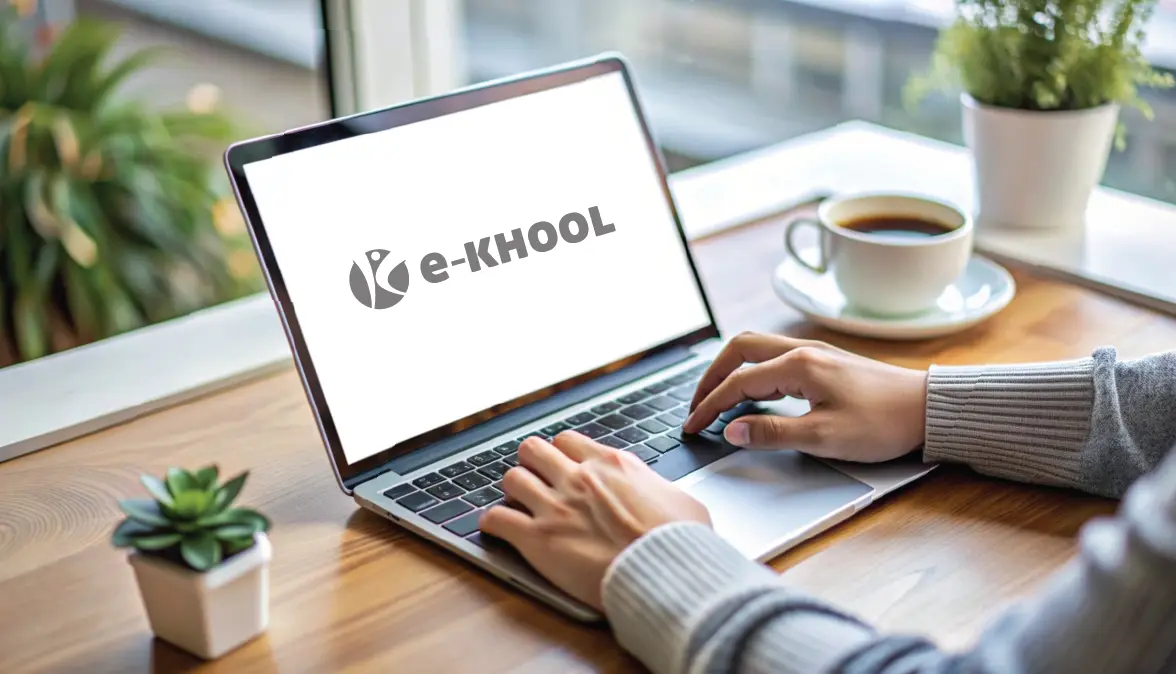New National Education Policy in India, Digital Repository and LMS
The National Education Policy (NEP) 2025 has established a bold and forward-looking framework to reshape the Indian education landscape in terms of technological innovation, and digital integration. Focusing to this vision, the recognition of MOOCs (Massive Open Online Courses) makes a transformative shift towards dynamic, accessible and learner centric education software for millions across India.
Now lets see what exactly NEP is, how digitalization shifts the education landscape and the role of e-khool LMS in getting credit based MOOC in this article below.
National Education Policy India 2025
The current National Education Policy India 2025 is India's blueprint for revamping its education system to meet 21st-century demands. It highlights several key objectives::
- Flexible Learning Pathways: Introducing advanced frame work for strengthening the teaching and learning.
- Reforming the existing exams: Through advanced digital technologies for Education, reforming the existing exam system in current educational landscape.
- Technology Integration: Leveraging technology to ensure equal access to quality education.
- Lifelong Learning Opportunities: Supporting skill-based learning and continuous professional development.
These reforms aim to revamp education, reduce learning gaps, and prepare students for a competitive global environment.
Technology in Education
Technology is the backbone of modern education. By integrating digital tools, the Indian education sector can create a seamless, engaging, and efficient learning environment. Here's how technology is reshaping education:
- Interactive Learning: Virtual labs, simulations, and AI-driven tools make complex topics accessible.
- Personalized Education: Report analytics and AI customize learning experiences based on individual needs.
- Remote Learning: E-learning platforms ensure reachability of education, especially in remote areas.
Digital Transformation of Education in India
In the evolving digital worlds, India is undergoing a profound digital transformation in education, driven by government initiatives and private sector involvement. The aim is to create a more inclusive and technology-driven education system through advanced new education policy.
Digital Courses & Repositories
- MOOCs: Platforms like SWAYAM and NPTEL offer diverse courses accessible to all learners.
- OERs: Digitally crafted resources ensure cost-effective learning materials.
- Repositories: Centralized hubs for e-books, journals, and multimedia resources enhance learning opportunities.
Digital Education with LMS Technologies
Learning Management Systems/ LMS technology integration in schools are pivotal in transformation of digital learning. They streamline course management, student tracking and resource management. Key benefits of digital education in India with LMS technologies include:
- Ease of Access: LMS platforms are available on multiple devices, enabling on-the-go learning.
- Collaboration Tools: Forums, chats, and project management tools encourage peer interaction
- Assessment Mechanisms: Real-time quizzes and analytics help evaluate learning outcomes effectively.
As you can see effect of Learning Management System in education sector has significantly increased the retention and outcome. Consider the below pictorial representation,
Also read: Powerful eLearning Authoring Tools Software for Shaping Training and Education
Credit-based MOOC/OER Recognition
Credit-based MOOCs and OER recognition is a revolutionary step under NEP 2025. It enables students to:
- Earn Academic Credits: MOOCs completed on accredited platforms can contribute to degree programs
- Gain Skill Certification: Offers Industry-recognized certifications improve employability
- Access Lifelong Learning: Learners can explore interdisciplinary courses for continual growth.
How to get Credit-based MOOC/OER Recognition with e-khool LMS?
The e-khool LMS is a versatile platform designed to align with NEP 2025 objectives of credit-based MOOCs recognition. Here's how it facilitates MOOC and OER recognition:
- Course Mapping: Aligns MOOC content with academic curriculam for seamless credit integration.
- Progress Tracking: Provides detailed analytics on learner performance and engagement.
- Certification Management: Issues digital certificates recognized by educational institutions and industries.
- Centralized Repository: Hosts a variety of MOOCs and OERs, ensuring easy access and efficient management.
- Collaboration with Universities: Enables partnerships to standardize credit allocation practices through universities.
How to Overcome Common Challenges in New LMS Adoption?
Learning Management System adoption is essential for modern organizations
ekhool.com
Frequently Asked Questions
Conclusion
NEP 2025 paves the way for a technology-driven, all accessible, and flexible education system in India. Recognizing MOOCs and OERs for academic credits is a game-changing initiative that aligns with global education trends. By leveraging advanced LMS technologies like e-khool, the Indian education sector can achieve its NEP 2025 goals and set a benchmark for digital education transformation.
Personalized Learning Paths for Every Team Member
Contact Support

